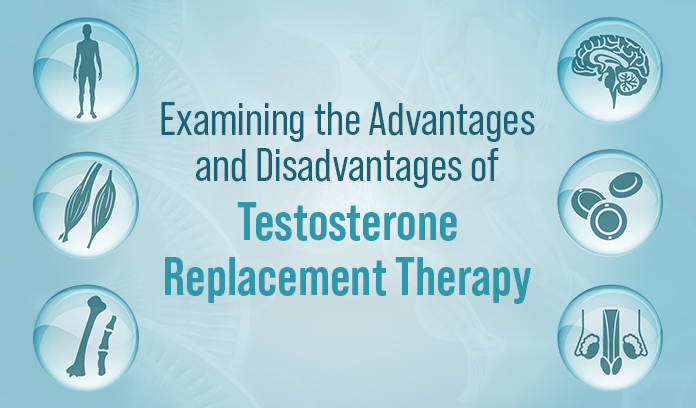Testosterone is an important hormone in both men and women, playing a crucial role in bodily functions. However, as men age, their testosterone might decline, leading to a range of symptoms and overall health concerns. To address this issue, many individuals opt for testosterone replacement therapy (TRT) as a potential solution. In this blog, we will delve deeper into the pros and cons of Testosterone Replacement Therapy to assist you in making the right choices.
Pros of Testosterone Replacement Therapy
- Improved Sexual Health: The potential for improved sexual health is one of the primary benefits of TRT. Low testosterone levels often affect a man’s libido, erectile ability, and overall sexual performance. TRT can aid in restoring healthy testosterone levels, potentially improving sexual desire and performance.
- Increased Energy Levels: Low testosterone levels are often accompanied by fatigue and low energy. TRT can assist in overcoming these problems by increasing energy levels, which promotes increased productivity and a better overall quality of life.
- Muscle Mass and Strength: Testosterone plays an essential role in muscle development and maintenance. TRT may help in maintaining muscle mass and strength, particularly for those who regularly exercise or perform strength training. This can be beneficial for older men who naturally experience muscle loss due to aging.
- Increased Bone Density: Strong, healthy bones are maintained by testosterone. Low testosterone levels can increase the chances of osteoporosis and fractures. TRT might improve bone density, which lowers the risk of bone-related problems.
Cons of Testosterone Replacement Therapy
- Potential Side Effects: Like any other medical treatment, testosterone replacement therapy is not without its potential side effects. The side effects may include acne, fluid retention, increased red blood cell count, and in a few cases, enlarged prostate. Consulting with a healthcare professional can assess your circumstances and monitor your hormone levels to reduce the risk of side effects.
- Risk of Hormonal Imbalances: TRT involves supplementing the body with external testosterone, which can interfere with the natural production of hormones. This may result in a decrease in the body’s ability to produce testosterone on its own. To ensure that hormone levels are regulated throughout the treatment, it is necessary to undergo regular monitoring.
- Potential Cardiovascular Risks: According to some research, TRT may be linked to an increased risk of cardiovascular events such as heart attacks and strokes. However, the results of the research in this field are still unclear. Before starting TRT, it’s important to go over your cardiovascular history with your doctor.
- Not Suitable for Everyone: Individuals with certain medical conditions such as prostate or breast cancer are not recommended for testosterone replacement therapy. It is essential to undergo a thorough evaluation by a healthcare specialist to determine if TRT is suitable for you.
Conclusion
Testosterone replacement therapy offers numerous benefits including improved sexual health, increased energy, and enhanced bone and muscle density for those with low testosterone levels. However, it is important to understand the side effects too. These include hormonal imbalances and potential cardiovascular risk. Consult with a healthcare professional to determine and understand if TRT is suitable for you.

